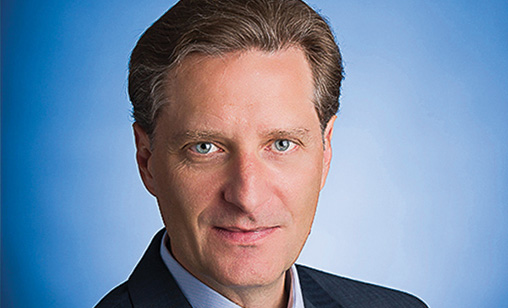News Backgrounder
Payments paradise lost?
Competition is intensifying among providers as the old order of payment settlements is shaken to the core by digital disruption. The latest blow to the once cosy relationship between payment providers and airlines is the International Air Transport Association’s planned financial gateway.
March 1st 2017
Why is it necessary for trade body, the International Air Transport Association (IATA), to involve itself in the commercial sector of the air travel industry? Read More » asked president and CEO of UATP, Ralph Kaiser, when Orient Aviation spoke to him last month.
Competition in the payment space is growing, said Kaiser, but it is not competition that concerns the industry about the IATA initiative.
 |
“I see the GDSs (Global Distribution Systems) in payments and now I see IATA is getting into payments. Everyone thinks they can do payments, but are they doing it for the airlines or are they doing it for their own benefit?” he said.
Kaiser believed IATA could be going a step too far with the development of its IATA Financial Gateway (IFG). Instead of setting standards as an industry body, he said, it appeared IATA wanted to release its own commercial product.
It is a contention IATA firmly denied. Senior vice president for financial and distribution services, Aleks Popovich, told Orient Aviation IFG is a voluntary neutral payment gateway and not a payment system.
“It is a technology layer that facilitates the connection, for example between credit card providers and airlines or other travel suppliers,” he said.
“It is intended to allow airlines and other travel suppliers to simplify and optimize their different sales payment processes on a single global platform, irrespective of a distribution network, business model or payment method. It is transparent to the travel agent and has no implications for their business.”
Popovich said IATA’s mandate from its members, which is recognized by governments, is to be a standard setting organization for the global air transport industry. “We have performed this role for more than 70 years. IATA standards are pro-competitive because they are open standards that anybody can use. All of IATA’s products and solutions comply with all applicable regulations and licensing requirements in every jurisdiction in which they are available.”
Kaiser begs to differ and said so do others in the sector. “One has to wonder,” he said, “how someone who sets the rules and standards can set up products that are kind of unfairly competing with everyone else in the marketplace.
“It is probably under examination and will be examined further as this evolves. But we are hearing pushback from the agency community which argued IATA should be setting standards and rules and not pushing products down our throats so to speak,” he said.
The latest debate about the form payment systems will take in the new world of social media enablement will be on the agenda at this month’s UATP Airline Distribution conference, which will be held in Hong Kong this year.
| 'In 2017, at least 50% of online direct travel bookings and ancillary travel purchases will be made on a mobile device. Surveys reveal that a typical individual who is planning a journey visits 22 websites in multiple sessions before confirming a trip' |
In January, IATA and JR Technologies, a company that specializes in New Distribution, Capability airline retailing solutions, signed an agreement to design, develop, host and operate the IATA Financial Gateway (IFG) payment solution. The IFG will support both direct and indirect airline retailing distribution systems.
“There’s an IATA rule called 890 that described the requirements of a payment product to be used by agencies. Most products can’t be used, but their [IATA’s] own product is exempt,” Kaiser said.
“You have to have a level playing field or someone is going to sue them [IATA]. The big car brands and the big banks are not going to be pushed out of this space because a trade association is myopically writing rules in Geneva or Montreal or wherever they are doing.”
Kaiser added: “In payments we are seeing new developments every six months. It’s not just the types of payment. There is everything from credit cards to alternative payments such as bitcoin and global payment systems like Apple Pay. Is that going to be good for airlines or not? Airlines want to reduce costs, but the consumer wants convenience and obviously security.”
UATP’s core business is B2B financial settlements between airlines and corporate customers. Members include global airlines, the biggest American airlines, British Airways and Lufthansa. Asia-Pacific and Gulf members are Air New Zealand, Air Nuigini, China Eastern Airlines, Etihad, Japan Airlines, Malaysia Airlines, Qatar and Shandong Airlines.
Sam Harrison says:
September 13th 2025 02:36pm